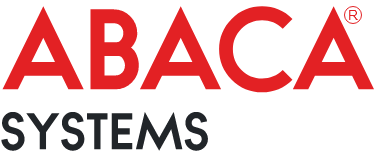Jamfast

The concept behind Jamfast is to enable the workforce to make any recipe in under 2 minutes regardless of their experience.
Jamfast- Rapid Development
About The Project
The concept behind Jamfast is to enable the workforce to make any recipe in under
2 minutes regardless of their experience. It’s all about making your kitchen work
smarter rather than making a man work harder. The project focuses on the process
that is transforming how quick-service restaurants with client-facing kitchens
lower the impact of employee turnover, improve the accuracy of orders and
increase the speed of service. Users can see real-time line performance on any
mobile device and manage system-wide recipe changes from anywhere.
Goals
Although the kitchen was smarter earlier, it was based on old technology. The code
was earlier written in the Delphi language. It requires big screens and costly
scanners. The hardware and the setup were costly (around $15000.
The company proposed to develop the same code in Oracle APEX language. A
suggestion was given to use Apple products. This reduced the total cost to $4000,
which made a significant difference.
We also proposed to the client to make it a SaaS-based project in which the admin
will handle the stores.
Before Jamfast, users had to face the limitations of working memory which leads to
stress, human error, job dissatisfaction, and turnover. But after Jamfast, the user
can just scan the blender jar at each station, the ingredients appear to make and
memorize any recipe regardless of experience.
Timeframe
In the initial days of the project, we were given a timeline of 3 months to develop
and test the project (basic setup).
But there was a last-minute requirement of the client to launch the project early
on, so we met the requirement and delivered the project to the client in just two
months.
Resources
- Manpower: DBAs, Project Managers, Business analysts, Graphic designers,
- Oracle APEX developers and QAs
- The manual lab was set up using a Mac mini, Data matrix code scanners, and ipads.
- Technologies: Oracle APEX, PL/ SQL Javascript, Python, Docker.
Major Roadblocks
- Timeframe (three months project was to be delivered in 2 months)
- Due to the unavailability of Toast (Point of Sale), we had to integrate Python with oracle APEX.This was a time-consuming task.
- Dependencies on communication: As the project was new, we have to depend on the client to share the findings/ answer the queries. The roadblock here was the time difference, however, it was managed.
Solution
The timelines were met by including more developers and putting in the extra effort.
To overcome the Toast POS dependency, Python language was integrated with Oracle APEX. We have connected our database from their store POS through a ticket parser.
Meetings with the client were according to their time zones and the work was done according to our time zones.
Methodology
Agile methodology was used to complete the tasks on time. One-week sprint swere prepared and the demo of the development done during that
sprint was given to the client by recording videos
Process of the developed project
The first scan assigns the order to the container and a scan at each station displays the designated ingredients so anyone can make and memorize any recipe faster, without any experience
Result
We were able to deliver the project on time in the month of January. Initially, the
system was set up in one store of Jamba juices. Currently, it is working
successfully in 3 stores of Jamba juices.
